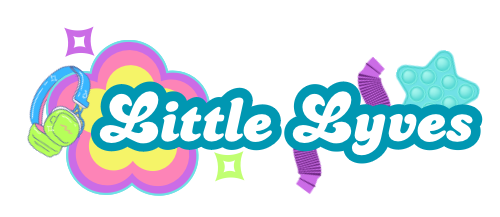Navigating the path to a diagnosis for sensory processing differences, autism, or ADHD can be overwhelming, not just emotionally, but also financially. Understanding the potential costs involved can help families prepare for this important step in seeking support for their child. In this blog post, we will break down the various expenses you might encounter during the diagnosis process in the U.S. and provide some tips for managing these costs.
1. Initial Evaluations
The first step in getting a diagnosis typically involves an initial evaluation by a healthcare professional. This can include:
- Developmental Pediatrician: An evaluation by a developmental pediatrician can cost anywhere from $200 to $1,500, depending on the provider and location.
- Psychologist or Psychiatrist: Evaluations by a psychologist or psychiatrist may range from $500 to $2,500. These professionals conduct comprehensive assessments that may include interviews, questionnaires, and observations.
- Occupational Therapy Assessment: For sensory processing differences, an occupational therapy evaluation can range from $150 to $500, depending on the complexity of the assessment. Note: This won’t be an official/formal diagnosis but it can provide insight and understanding of your child’s specific needs. Owner’s experience: This is the avenue we decided to go with our 3yo and it has given us understanding, an informal diagnosis and the support and tangible tools to parent her specific to her.
2. Diagnostic Tests
In some cases, diagnostic tests may be recommended as part of the evaluation process. These can include:
- Standardized Assessments: These assessments can help measure your child's developmental levels and are often included in the overall evaluation fee but can also be billed separately, costing an additional $100 to $1,000.
- Speech and Language Evaluations: If there are concerns about communication skills, these evaluations may also be necessary, typically costing between $150 and $600.
3. Follow-Up Appointments
After the initial evaluation, follow-up appointments may be necessary to discuss results, treatment options, and recommendations. Each appointment can range from $100 to $300 per session, depending on the provider and services offered.
4. Insurance Coverage
Many families wonder how insurance will impact their out-of-pocket costs. Here are a few things to consider:
- Check Your Plan: Insurance plans vary widely in their coverage for evaluations and therapy. It’s essential to contact your insurance provider to understand what is covered under your plan and any deductibles or co-pays that may apply.
- In-Network vs. Out-of-Network: Utilizing in-network providers can help lower costs significantly, so be sure to check which professionals are part of your plan.
- Pre-Authorization: Some insurance companies require pre-authorization for certain evaluations and treatments, which can add another layer of complexity.
5. Therapies and Support Services
Once a diagnosis is made, ongoing therapies and support services may be recommended. These can include:
- Occupational Therapy: Costs can range from $75 to $200 per session, depending on the therapist and location.
- Behavioral Therapy: Applied Behavior Analysis (ABA) or other therapeutic approaches can cost between $100 and $300 per session.
- Support Groups: While some support groups are free, others may have associated costs for materials or facilitator fees.
6. Financial Assistance Options
If the costs of diagnosis and treatment feel overwhelming, there are resources available to help:
- State and Local Programs: Many states offer programs for early intervention and support services for children with developmental differences. Check with your local health department or school district for options.
- Nonprofit Organizations: Organizations like the Autism Society and Sensory Processing Disorder Foundation often provide resources, including financial assistance and information on navigating the diagnosis process.
- Flexible Spending Accounts (FSAs): If your employer offers an FSA, consider using pre-tax dollars to cover medical expenses related to diagnosis and therapy.
Additional Tips for Free or Low-Cost Autism and ADHD Testing:
When seeking evaluations and testing for autism or ADHD, certain age ranges and programs in the U.S. may provide free or reduced-cost services. Here are some key considerations:
-
- Early Intervention (Ages 0-3): The Individuals with Disabilities Education Act (IDEA) mandates that states provide early intervention services for children with developmental delays, including autism. These services are typically free for children from birth to age 3.
- School-Aged Children (Ages 3-21): Public schools are required to provide free evaluations for children suspected of having a disability, including autism and ADHD. This is part of their responsibility under IDEA, and parents can request an evaluation through their child’s school.
- State Programs: Many states have programs that offer free or low-cost assessments and services for children with developmental differences. It’s essential to check with local health departments or educational institutions.
- Community Health Centers: Federally qualified health centers often provide services on a sliding scale based on income. These can be great resources for families seeking evaluations and support.
Keep in mind, schools conduct educational evaluations to determine if a student qualifies for special education services under the Individuals with Disabilities Education Act (IDEA) or Section 504 of the Rehabilitation Act.
The focus is on the child's ability to learn and perform in an academic setting. The goal is to assess if the student requires special accommodations or an Individualized Education Program (IEP) or 504 Plan.
This does not provide a medical diagnosis.
Final Thoughts
While the costs of diagnosing sensory processing differences, autism, or ADHD can add up, understanding the financial aspects of the process can help families prepare and find the support they need. By being proactive in researching costs, utilizing insurance benefits, and seeking out available resources, you can navigate this journey with greater confidence.
At Little Lyves, we understand that every family's journey is unique, and we're here to support you every step of the way. For more resources and tools tailored to your child's needs, check out our sensory boxes and blog for helpful tips!

